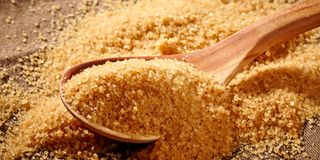Fresh sugar tax locked to imports in revised budget

Consumers and industrialists may get relief if Parliament approves a proposal to shelve a new excise tax charge on sugar and confectionery.
Consumers and industrialists may get relief if Parliament approves a proposal to shelve a new excise tax charge on sugar and confectionery.
The Treasury, in its Finance Bill 2023, has proposed to charge a Sh5 excise tax per kilogramme of sugar and Sh42.1 per kilogramme of locally manufactured confectionery, which could increase the consumer prices of the sweetener.
The Finance and Planning Committee of the National Assembly, however, proposes that the excise taxes would only apply to imported sugar and confectionery, shielding consumers from higher prices of the commodity and safeguarding the competitiveness of millers and manufacturers of sugar-based products.
"The committee observed that there is a need to protect local sugar manufacturers of sugar, therefore, amended the clause to provide for the excise of Sh5 to apply to imported sugar," said the committee in its report on the Finance Bill 2023.
The Treasury's proposal to introduce an excise tax on sugar has drawn protests from local millers and manufacturers of sugar-based items.
"The proposal to charge excise tax (Sh5 per kilo) on sugar will lead to an increase in the price of sugar and goes against the government's agenda of bringing down the cost of living. Suffice to note, the current price of sugar has hit a high of over Sh200 per kilo," the Kenya Association of Manufacturers (KAM) warned.
"Additionally, imposing excise duty on sugar will make the products manufactured using sugar uncompetitive because other EAC (East Africa Community) states do not impose excise duty on sugar."
Confectionery
The lobby also took issue with the planned excise tax on confectionery, terming it punitive.
"The proposal to impose excise duty (Sh42.1 per kilo) on locally-manufactured confectionery will drive several local companies out of business as it will make them uncompetitive and their products unaffordable. This move will eliminate the competitiveness of the local confectionary industry against imports as the retail prices will increase due to the excise duty cost that will be passed on to the consumers," said the KAM in reaction to the Finance Bill 2023.
"It will also erode the competitiveness of locally produced confectionery products in regional export markets such as Tanzania and Uganda, where similar proposals to make local confectionary excisable were rejected after lawmakers assessed the negative impact on the industry."
Apart from the excise duty on sugar, the Finance and Planning Committee accepted amendments to retain the sweetener in the list of zero-rated products to curb rises in prices, which would impact the overall cost of living.
"The committee agreed with this proposal to retain this paragraph (on sugar) at the schedule of zero-rated items," said the committee.
Read: End sugar farmers’ woes
For a "zero-rated good", the government does not tax its retail sale but allows credits for the value-added tax (VAT) paid on inputs. This reduces the price of a good. Governments commonly lower the tax burden on low-income households by zero-rating essential goods, such as food and utilities or prescription drugs.
But if a commodity business is "exempt," the government doesn't tax the sale of the good, but producers cannot claim a credit for the VAT they pay on inputs to produce it. Because exempting breaks the VAT's chain of credits on input purchases, it can sometimes raise prices and revenues.
Governments generally only use exemptions when value added is hard to define, such as with financial and insurance services.





